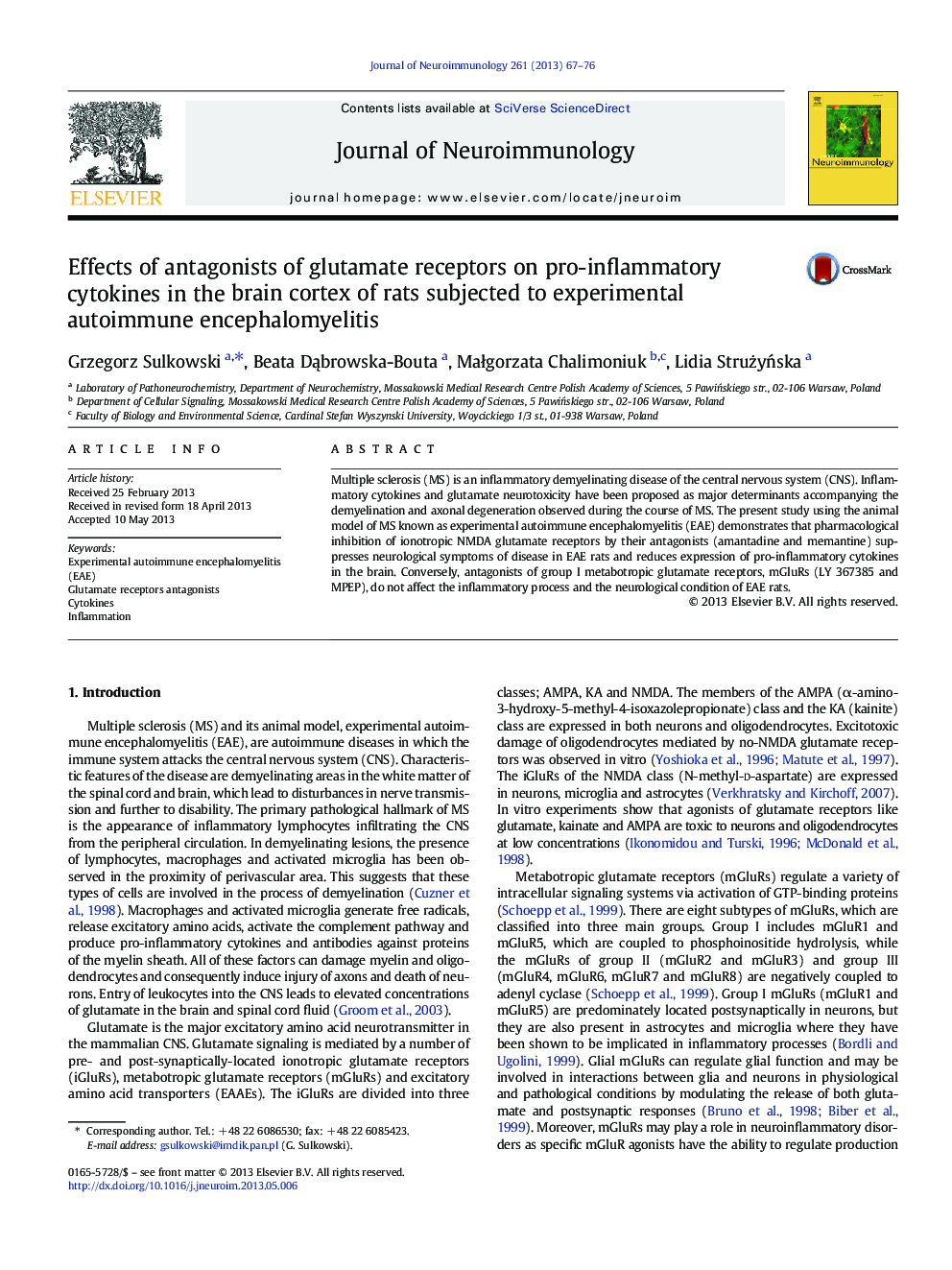| Article ID | Journal | Published Year | Pages | File Type |
|---|---|---|---|---|
| 6020498 | Journal of Neuroimmunology | 2013 | 10 Pages |
â¢Glutamate excitotoxicity is involved in EAE pathology.â¢Amantadine and memantine inhibit the neurological deficits.â¢Antagonists of MNDARs decrease levels of cytokines in acute phase of EAE.â¢Therapy with antagonists of group I mGluRs did not exert positive effects.
Multiple sclerosis (MS) is an inflammatory demyelinating disease of the central nervous system (CNS). Inflammatory cytokines and glutamate neurotoxicity have been proposed as major determinants accompanying the demyelination and axonal degeneration observed during the course of MS. The present study using the animal model of MS known as experimental autoimmune encephalomyelitis (EAE) demonstrates that pharmacological inhibition of ionotropic NMDA glutamate receptors by their antagonists (amantadine and memantine) suppresses neurological symptoms of disease in EAE rats and reduces expression of pro-inflammatory cytokines in the brain. Conversely, antagonists of group I metabotropic glutamate receptors, mGluRs (LY 367385 and MPEP), do not affect the inflammatory process and the neurological condition of EAE rats.
